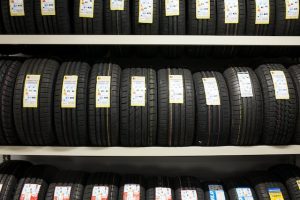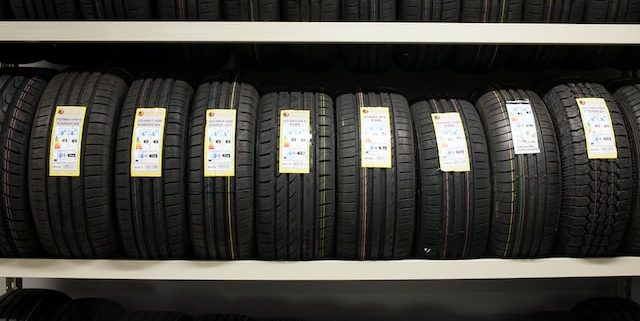How to choose the best tire for your car
 When it comes to buying tires for your car, it can be a daunting task. With so many different types and sizes available, it can be challenging to know which tire is the right one for your vehicle. Choosing the right tire is crucial for your safety and the performance of your car. In this article, we will guide you through the process of buying the right tire for your car.
When it comes to buying tires for your car, it can be a daunting task. With so many different types and sizes available, it can be challenging to know which tire is the right one for your vehicle. Choosing the right tire is crucial for your safety and the performance of your car. In this article, we will guide you through the process of buying the right tire for your car.
Factors to Consider When Choosing Tires
Tire Type
The type of tire you choose depends on the weather and road conditions you’ll be driving in. There are three main types of tires to consider:
- Summer Tires: These are designed for use in warm, dry conditions. They provide excellent handling and traction on dry roads, but can be dangerous in wet or snowy conditions.
- Winter Tires: These are designed for use in cold, snowy, and icy conditions. They provide superior traction on snow and ice, but may not perform as well on dry roads.
- All-Season Tires: These are designed to provide a balance of performance in different weather conditions. They are a good choice if you live in an area with mild winters.
Tire Size
Tire size is an essential factor to consider when buying new tires. You can find your tire size on the sidewall of your current tires. It will look something like this: P225/50R17. The numbers represent the tire’s width, aspect ratio, and wheel diameter. It’s essential to match the tire size to your vehicle’s requirements to ensure optimal performance.
Driving Conditions
The driving conditions in your area will affect the type of tire you choose. For example:
- Wet Weather: If you live in an area with frequent rain, you’ll want a tire with good wet traction to prevent hydroplaning.
- Snowy Conditions: If you live in an area with lots of snow, you’ll want a tire with good traction on snow and ice.
- Off-Road: If you plan to drive off-road, you’ll want a tire with excellent grip on dirt, rocks, and mud.
Budget
Your budget is another essential factor to consider when buying tires. It’s essential to balance cost and quality to ensure you’re getting the best value for your money. While cheaper tires may save you money upfront, they may wear out faster and need to be replaced more frequently.
Conclusion
In conclusion, buying the right tire for your car is essential for your safety and the performance of your vehicle. By considering factors such as tire type, size, driving conditions, and budget, you can make an informed decision when selecting new tires. Understanding tire markings and performance ratings can help you choose the best tire for your needs. Whether you decide to buy from a tire dealership or an online retailer, it’s crucial to choose a reputable seller. Proper tire maintenance, such as regular rotation, inflation, and balancing, can extend the life of your tires and ensure optimal performance. We hope this guide has helped you understand how to buy the right tire for your car and make the process less daunting.



